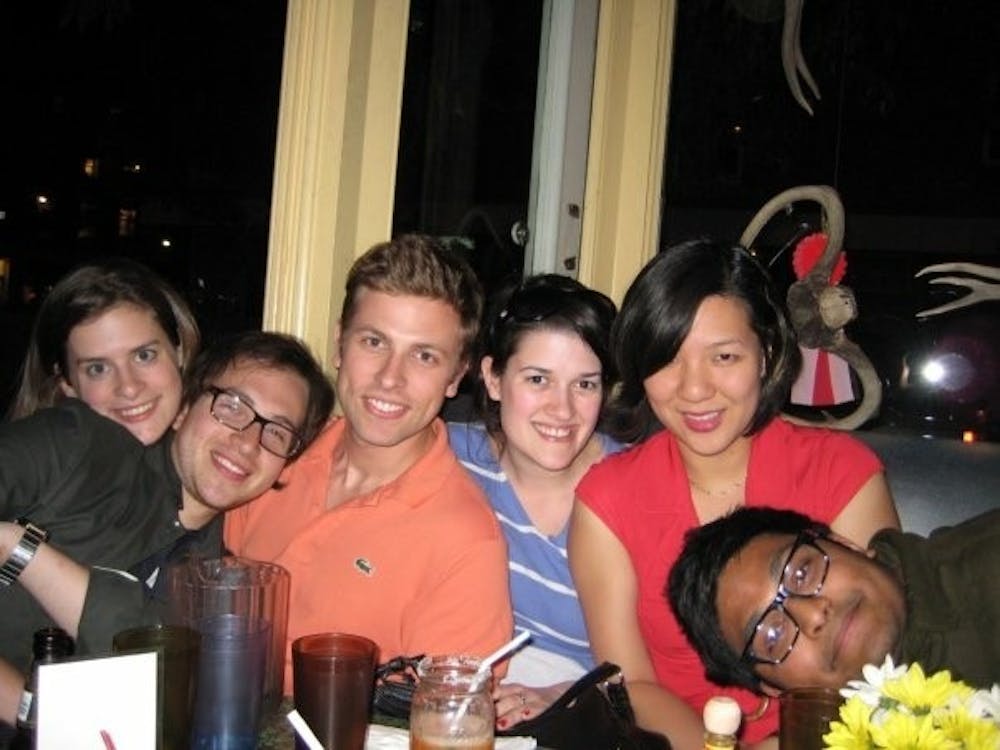Ross Clark was the Editor–in–Chief from January 2003 to December 2003.
This piece is part of a series of personal narratives written by Street alumni in order to celebrate the 50th anniversary of 34th Street.
When I was the Editor–in–Chief of 34th Street (like, one million years ago), a recently graduated Street alum came in to share his perspective on the working world and offer some words of advice to all the young Street kids. In talking about Street versus his current job as a writer at a top weekly magazine, I remember him saying, “You’ll never have this much freedom again.” And then I remember even more the mental (and likely physical) eye roll with which I replied to that comment and went about my day thinking about how I was going to continue to do amazing/cool/boundary–pushing things when I entered the real world.
Turns out, he was right. I’ve had many jobs in media since graduating from Penn and I’ve never enjoyed the level of freedom I had at 34th Street. Perhaps it is these trying, disruptive times where content and media must evolve and compete with platforms and technology. But I believe the bigger point is that too many folks are playing it safe. At a recent job, a senior creative executive and I were having lunch and she shared that one of the reasons magazine journalism is so challenged today is because, “No one takes risks anymore.”
In thinking back at my time at Street, I am certain that one thing we always did was take risks. There were good risks like new sections, new voices and provocative cover stories. Then there were the bad risks. How about a humor photo essay (titled “Post Coital Brunch”) about a couple breaking up, shot vérité style with an IRL couple having brunch at a restaurant at 40th and Walnut? Check. Later at a scolding sit–down with our lawyer, The Daily Pennsylvanian Editor–In–Chief and said couple, I learned that what you write has real impact on people’s lives. And also, that she was the one who got dumped—so at least we got the story right. In our current era of fake news, this was a bit too real. Yet the majority of the time, we took the right risks, pushing the envelope when it came to redesigning the logo, creating sections that spoke to an increasingly social and connected campus and introducing new, thematic issues.
On a personal level, joining Street itself was a risk. Like many young people, I was trying to find my tribe. I remember when I was freshman, I went to a weekly meeting for students who were interested in getting involved with the magazine. I joined Street as a designer in my first few months at Penn when I was trying to figure out college. Initially, I found the process nerve–wracking as I had never used the software or designed a page and I didn’t know anyone else there. In time, I figured out Photoshop and Quark (look at me dating myself), became Design Editor of the magazine, made the best friends I had in college (and to this day) and eventually went on to become the Editor–in–Chief of Street. My experiences would go on to shape what I have done with my life with a career in media, spanning multiple areas and functions within the industry.
Street was such a formative experience for me across so many elements of my life. And I had so much fun doing it. All the late nights blur together, but in my memory, they are always anchored by the music we played when closing each week’s issue every Wednesday night. Talking Heads’ Stop Making Sense was a favorite (nostalgic even then in the 2000s as it’s an album that came out in 1984). In particular, when their song “Once in a Lifetime” comes on and David Byrne sings, “And you may ask yourself, well / How did I get here,” all I can think of (and it’s also the answer) is Street.
Ross Clark works in media in New York

